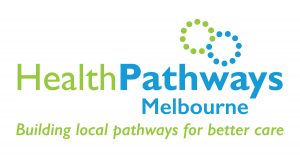
Syphilis in Victoria
Syphilis cases in Victoria have more than more than doubled since 2014, making Victoria a syphilis hot spot of Australia.
Of the suburbs most affected, most fall within the North Western Melbourne Primary Health Network (NWMPHN) catchment, with Melton particularly affected.
The syphilis epidemic amongst gay men and other men who have sex with men had nearly disappeared as part of the earlier response to HIV. However, it has worryingly now re-emerged and still remains the source of the highest case numbers in Victoria. There have also been increases observed in the following population groups:
- Aboriginal and Torres Strait Islander peoples
- Heterosexual men (129 per cent increase)
- Heterosexual women (220 per cent increase)
- Women of childbearing age and those pregnant at time of diagnosis. The re-emergence of congenital syphilis from 2017 onward (potentially fatal for the child) is of particular concern.
Implications for general practice
There are a number of ways that general practices can identify and support patients.
Screening and diagnosis
Practitioners should strongly consider including syphilis on sexually transmitted infection (STI) screening for all sexually active young people, especially if they are in one of the high prevalence groups or areas listed above. Educating all sexually active young people about the syphilis risk could also be part of everyday practice.
Gay men and other men who have sex with men should be offered serology for syphilis at least once a year, as many cases of early infectious syphilis are asymptomatic. This should be more frequent for those at higher risk.
HIV positive gay men and other men who have sex with men should have serology for syphilis included in the routine bloods taken for monitoring HIV.
General practices should also consider the following points when screening.
- Patients on pre-exposure prophylaxis (PrEP) should have syphilis serology as part of their 3-monthly monitoring.
- Continue to screen all women for syphilis in the first trimester of pregnancy. Syphilis testing should be repeated at 28 and 32 weeks of pregnancy and at delivery in pregnant women who may be at high risk of sexually transmitted diseases.
- Be aware of both primary and secondary presentations of syphilis.
- Have a high index of suspicion for syphilis, especially for any unusual genital ulcers or generalised body rashes.
Treatment
- For treatment and management advice, see the Syphilis Management page on Healthpathways Melbourne
- Partners also need to be treated without waiting for the results of serology.
- The Melbourne Sexual Health Centre has a dedicated clinical advice line (1800 009 903) and their team are happy to discuss cases and provide clinical guidance.
Partner sexual health GP services in Melbourne
Three general practices have partnered with Melbourne Sexual Health Centre to lead a push for better sexual health care in Melbourne. Clinicians can turn to these practices for support and referral of complex cases. Two of these practices are in our region:
These practices are being supported by the Melbourne Sexual Health Centre (MSHC), which is internationally recognised as a leader in sexual health care and research. Staff at these practices have received in-depth training and education from MSHC and have adopted their policies and guidelines.
This pilot is part of a Victorian Government initiative to increase sexual health services across Melbourne. More information is available on our website.
Don’t fool around with syphilis campaign
The Australian Department of Health has released a new campaign, Don’t fool around with syphilis, as rising rates of syphilis have become an issue right across the country, including a breakthrough of congental syphilis cases in some jurisdictions. All primary care health practitioners need to be on high alert for possible syphilis, and encourage testing.
You can download posters and factsheets from the Don’t fool around with syphilis campaign website.
Resources for general practice 
- Melbourne Sexual Health Centre treatment guideline for syphilis and hotline for clinical advice: 1800 009 903
- Australian STI management guidelines
- HealthPathways Melbourne – Syphilis




